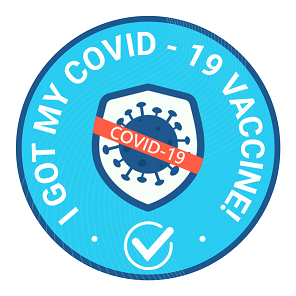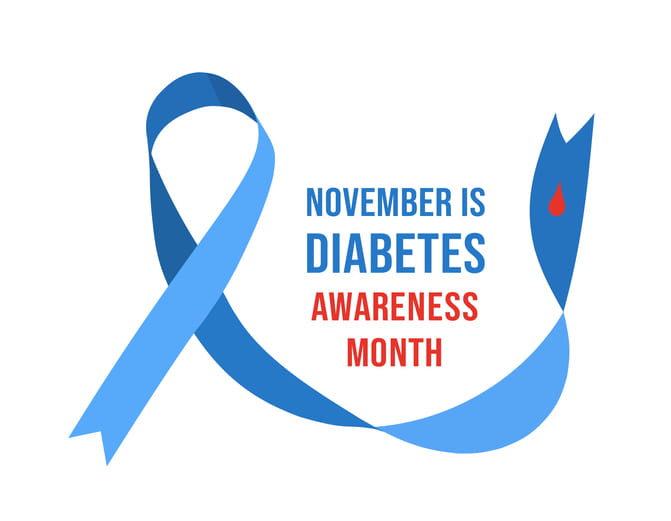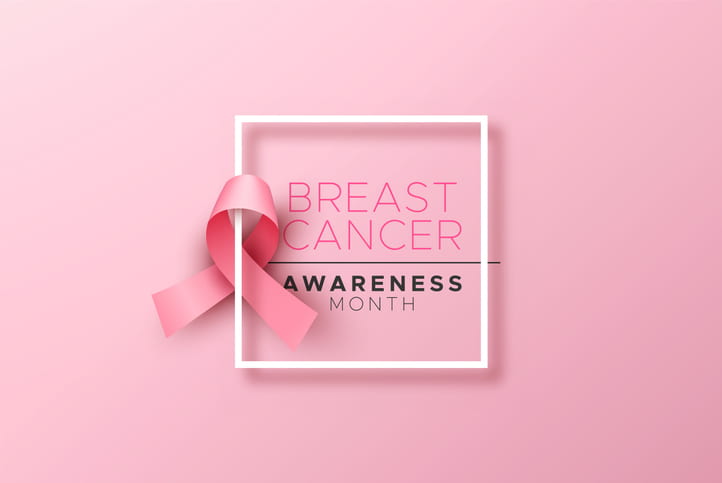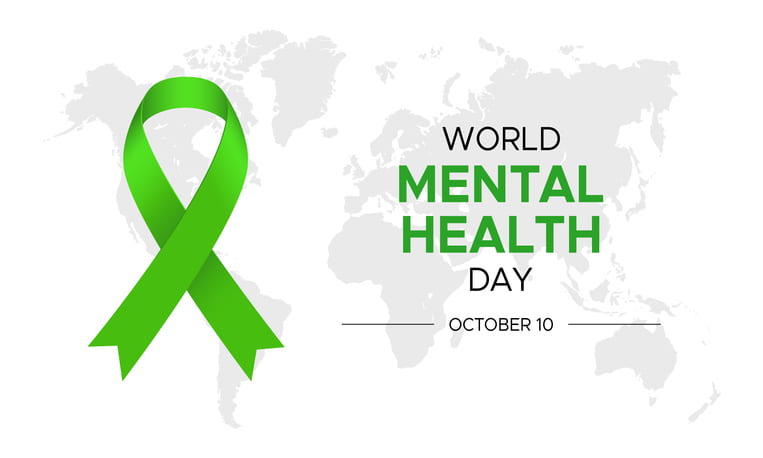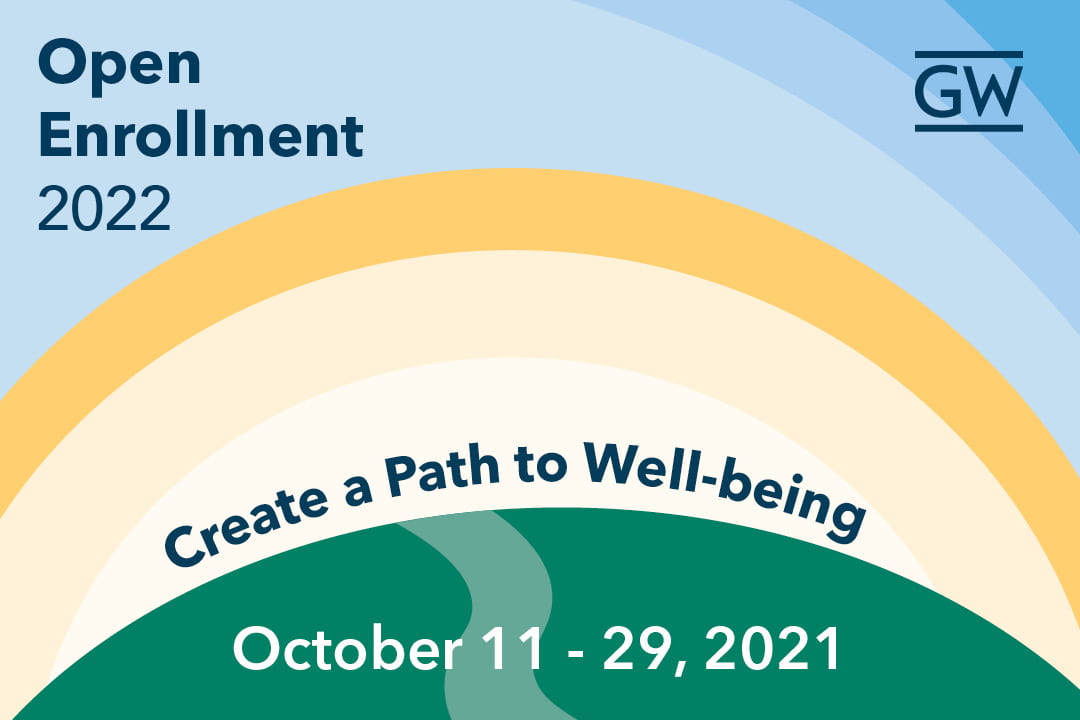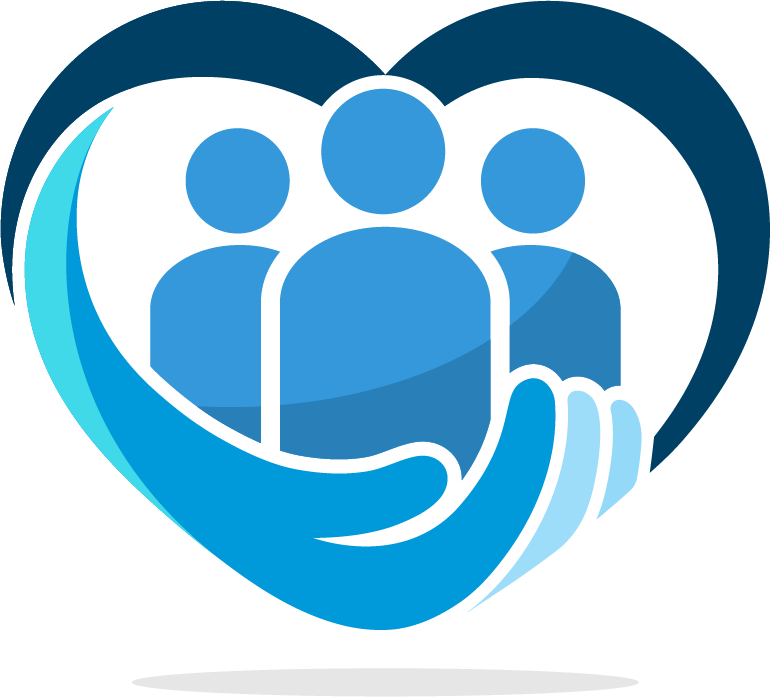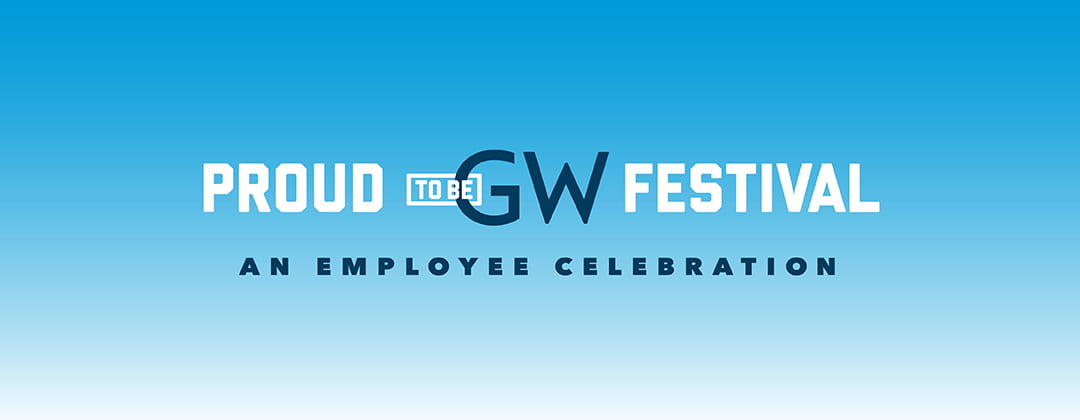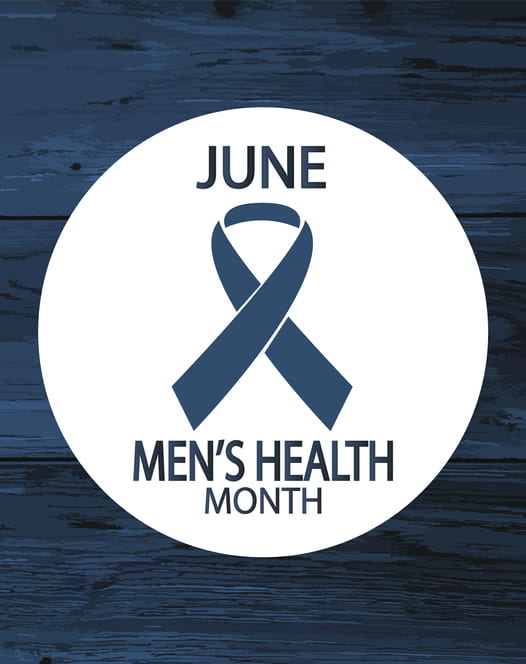Seasonal affective disorder, or S.A.D., can be a formidable consequence of shorter days, colder weather, and weaker sunlight. However, it’s highly treatable, thanks to treatments such as light therapy. Even walks outside can help boost your mood, says Daniel Z. Lieberman, MD, professor of psychiatry and behavioral sciences and vice chair for clinical affairs at the George Washington University (GW) Medical Faculty Associates (MFA). In a recent article, he explores the cyclical nature of both human biology and Mother Nature, how our mental health can be affected, and how to effectively use light therapy.
Posts
Setting Resolutions
January marks the annual time of year when we look to evaluate the state of our work, life-habits, relationships and interests. We explore what is going well, where we need to invest more, or less, time, and seek to understand what is helping us get closer to or farther away from our goals.
Even when we set similar goals, the way in which we achieve them will differ. To help you find sources of inspiration in setting goals and working towards them, we rounded up different topics and perspectives on New Year’s resolutions:
- Need inspiration? Review 25 health New Year’s resolutions that are realistic and actionable.
- Forbes 5 Ways to Keep Your New Year’s Resolutions: This article explores the role of discipline, deliberate action, planning, the ability to prioritize and also some tolerance for the discomfort. If you are an auditory learner, there is a seven-minute audio clip of the article.
- Don’t see the point in waiting till January to set resolutions? This New York Times article focuses on the Gen Z and Millennial trend to set goals throughout the year. Use your GW email for free access to the article.
- Looking for a refresher on the basic steps to keep goals and resolutions? Inc.com rounds up the top seven tips, starting with the importance of SMART goals, tracking progress and learning from mistakes.
COVID-19 Vaccine Pass
COVID-19 vaccine records from your local health department are helpful to keep on hand. GW medical plan participants can also download a Vaccine Pass from UnitedHealthcare. The pass uses a QR code to digitally display your records of your vaccination status. You can save this pass in your phone for when you need it, which may help eliminate the need to bring your CDC COVID-19 Vaccination Card to events and when you travel. Use it to show you’re vaccinated when going to crowded places like a concert or sporting event, taking an international flight and more. Be sure to check with your destination for vaccination proof requirements.
What is the COVID-19 vaccine record from UnitedHealthcare?
- The vaccine record includes the manufacturer and vaccination date, including dates for multiple doses.
- The information was gathered from UnitedHealthcare records, including claims and information from federal and state agencies, as well as vaccination providers.
How to find your COVID-19 vaccine record
- Sign in to myuhc.com and navigate to the vaccine page. The vaccine record link is at the top after you sign in.
- If your vaccine record is not showing, you may complete a form and upload your CDC Vaccination Card to get a self-reported digital vaccine record.
- If you received your vaccination at a location that did not request a copy of Medical Insurance card, you will need to self-report your vaccination.
How to access your COVID-19 vaccine pass on myuhc.com
- Sign in to myuhc.com account and go to “Vaccine record and resources.”
- If you have a vaccine record on file, choose “Create vaccine pass”, review and accept the Terms & Conditions to create your vaccine pass.
- Activating your vaccine pass is optional, so you can decide if and when you’d like a digital COVID-19 vaccine pass with a QR code.
- When you attend an event, present the vaccine pass to scan the QR code. Check with the destination prior to attending to assure the QR code will work.
Emotional Health Resources
Your mental health underscores the well-being of our life’s touchpoints. Work, family, friendships, hobbies, physical health, financial well-being are just some of the areas affected by mental health.
2022 kicked off with many of us feeling somewhat hopeful and yet also experiencing uncertainty as new variants make headlines and winter travel is impacted, while we continue to care for our family and friends who are affected by the pandemic.
Take a moment to review the emotional well-being programs available benefits-eligible employees and their loved ones. For questions, please email us at benefits@gwu.edu
Headspace
Headspace, the mindfulness app, is available at no cost to benefits-eligible faculty and staff. Use your GW email address to sign up at go.gwu.edu/headspace. This daily tool provides meditation, sleep, movement exercises and kids programs. “Weathering the Storm” is a specially designed section in response to the unique stress caused by the pandemic.
Employee Assistance Program (EAP)
GW’s Employee Assistance Program (EAP) is available at no cost to you and all members of your household (including dependent children up to age 26, whether or not they live at home). The service can assist you with a range of needs – from finding daycares in your area to up to five confidential counseling sessions.
Services are confidential and available 24 hours a day, 7 days a week.
Visit resourcesforliving.com using:
- Username: GW-Wellbeing
- Password: Yourlife
Call toll-free: (866) 522-8509 or TTY: (888) 879-8274
Talkspace via the EAP
Talkspace is a text therapy option available through the EAP for benefits-eligible employees and their household family members (13 years and up). In lieu of five virtual or in-person counseling sessions, employees may choose to use Talkspace and engage in text therapy with a matched therapist. Employees have access to Talkspace for five weeks, which can be used in a 120-day window.
Behavioral health benefits through the GW Medical Plans (PPO and HSP via UnitedHealthcare)
The GW PPO and Health Savings Plan include behavioral health benefits that offer services to support conditions like depression, ADHD, anxiety and substance abuse recovery services. Telemental health is also included in your benefits.
• Find a behavioral health provider and schedule appointments at myuhc.com. You can also visit the Live and Work Well website; enter code “UHC”as your company access code and click “Search Providers.”
Should you have questions about these programs, please reach out to us at benefits@gwu.edu.
Simple Therapy for GW Medical Plan Participants Begins 1/1/2022
Beginning January 1, 2022 GW medical plan participants and their eligible dependents (age 13 years and up) will have access to Simple Therapy. This virtual musculoskeletal program combines a comprehensive digital program with Live Physical Therapists to help you manage and prevent pain across 18 body parts including knee, hip, neck, shoulder, back, hand, and wrist. Join our Simple Therapy webinar to join a mini stretch exercise, learn how to register and get started.
Live physical therapists guide you to pain relief and prevention using targeted stretches and exercises personalized to your condition. Your feedback will modify your plan of care in real-time and adjust the difficulty of the exercises to help you progress at a pace that is comfortable for you.
SimpleTherapy’s mobile application makes it easy to perform the recommended stretches or meet with your care team anytime, anywhere. There are over 1,500 exercises in the program to address and prevent pain from head-to-toe, including back pain, knee pain and more.
The program offers:
- Head-to-toe muscle and joint pain prevention and pain management programs.
- An initial 30–45-minute comprehensive virtual consultation with a licensed physical therapist.
- Unlimited coaching support.
- A care pack filled with items to speed your recovery.
- A diverse panel of board-certified physicians, chiropractors, and physical therapists to answer questions and evaluate a member’s care plan throughout their journey.
Beginning January 1, 2022 GW medical plan participants and eligible dependents can sign up at no cost. You can take the risk survey now to understand your risk of developing a muscle or joint condition.
November is National Alzheimer’s Awareness Month and the focus this year is on the support of caregivers. Providing time, attention, care, support to your loved one suffering from dementia and Alzheimer’s is both challenging and rewarding. Read stories about how caregiving made a difference and add a tribute on the Alzheimer’s Association website to show your admiration.
Memory loss concerns are worrying for friends and family members. Assessing the situation with patience and focus can help. Here are questions to ask yourself and a guide to taking notes to capture changes. When we are emotional it’s sometimes challenging to remember signs and symptoms in our loved ones.
- What changes in memory, thinking or behavior do you notice?
What have you noticed that’s out of the ordinary and causing concern? - What else is going on?
Various conditions can cause short-term or long-term memory loss and affect thinking or behavior. Are there any health or lifestyle issues that could be a factor? These may include family stressors or medical problems like diabetes or depression. - Has anyone else noticed changes?
Has a family member or friend expressed concerns? What did he or she notice? - Are any of these changes a sign or symptom of Alzheimer’s or another dementia?
View the 10 early signs and symptoms of Alzheimer’s to check if they’re on the list.
Print a guide to take notes:
- Guide for those who have noticed changes in themselves – English | Spanish (PDF)
- Guide for those who have noticed changes in others – English | Spanish (PDF)
GW Offers Benefits to Support You
Are your searching for your own support when caring for a family member who has declining memory function? GW’s well-being programs can offer a helping hand:
- Enroll in the Elder Care Support program at no cost through Bright Horizons. Whether you want a professional opinion on care needs, short-term care, or guidance throughout the caregiving journey, your Bright Horizons® benefits can help.
- Read Elder Care FAQs.
- Take advantage of adult in-home back-up care through Bright Horizons at a GW subsidized cost. Employees have 10 back-up care days to use throughout the year and can be a mix of child and adult back-up care uses.
- Use the GW Employee Assistance Program to receive five counseling sessions at no cost. You can choose between in-person/virtual (depending on therapist’s appointment types) or use Talkspace text therapy for five weeks. The weeks must be used within a 120-day window and do not need to be consecutive.
Please contact Benefits at benefits@gwu.edu if you have questions about these support programs or other GW benefits.
National Diabetes Month
November is National Diabetes Month, a time when communities across the country team up to bring attention to diabetes. This year’s focus is on prediabetes and preventing diabetes. We gathered helpful resources around the web to help you learn more, offer support to loved ones, and stay informed about managing the disease.
Education and Awareness
- Several Type 2 bloggers share their experiences living with Type 2 Diabetes to help you feel more educated and connected especially in a changing world.
- Are you curious to know whether you experience pre-diabetes symptoms? Take a diabetes risk assessment.
- Food can still taste delicious and include your favorite ingredients when managing diabetes. Review these recipes from the Mayo Clinic – desserts are still included.
Speaking to Kids about Diabetes
When a loved one is diagnosed with diabetes, children can be part of the conversation. Diabetes affects the entire family and that’s why including children in the conversation is important. Read these seven tips for talking with children about diabetes.
New Diabetes Program under the GW Pharmacy Benefit
In 2022, GW will be implementing a new Diabetes Management Program for GW medical plan participants. CVS’s Next Generation Transform Diabetes Care program focuses on a highly personalized approach, customizing support based on a participant’s risk profile.
If you are currently using the Transform Diabetes Care program with Livongo, CVS Caremark will send you information before the new year on how to transition to the new program and how to get started with the new program offerings.
Speak with your doctor if you are concerned about your risk for diabetes. If you are interested to learn more about the new diabetes program from CVS in 2022, please contact us at benefits@gwu.edu.
Breast Cancer Awareness
Breast Cancer Awareness Month is an annual observance held in the month of October. Breast Cancer is the second most common cancer among U.S. women and is by far the most common cancer in women worldwide, both in developed and developing countries.1 .
To mark world awareness of the disease, pink ribbons adorn shopping bags, advertisements and even food items marking Breast Cancer Awareness. Take time this month to review FAQs about breast cancer, see if you’re eligible for a free screening and start a conversation with your doctor if you have questions or concerns.
Is Breast Cancer Screening Covered?
The two tests commonly used to screen for breast cancer are the mammogram and a clinical breast exam (CBE). Under the GW HSP and PPO medical plans, one mammogram per year is covered at 100% at age 40 and over. If you are at a higher risk of breast cancer, your doctor might want to use other tests too, such as a different type of mammogram or magnetic resonance imaging (MRI).
The National Cancer Institute recommends that:
- Women 40 years and older should get a mammogram every one to two years.
- Women who have had breast cancer or other breast concerns or who have a family history of breast cancer might need to start getting mammograms before age 40, or they might need to get them more often. Talk to your doctor about when to start and how often you should have a mammogram.
What Steps Should I Take if Breast Cancer Runs in My Family?
There’s no way to know whether you’ll get breast cancer even if it runs in your family. According to the American Cancer Society, most women who develop breast cancer don’t have any relatives with the illness. But it’s true that a family history of breast cancer does increase your risk.2
If your family history raises red flags, start by talking with your doctor about your family health history. That includes both sides — your mother’s and your father’s. Along with other factors, this can help your doctor evaluate your risk.
How Can I Support My Friend/Family Member with a Recent Diagnosis?
Many studies3 have found that cancer survivors with strong emotional support tend to adjust better to the changes cancer brings to their lives, have a more positive outlook, and often report a better quality of life. Research has shown that people with cancer need support from friends. You can make a big difference in the life of someone with cancer.
- Send brief, frequent notes or texts, or make short, regular calls. Include photos, kids’ drawings, silly cards, and cartoons.
- Schedule an ongoing virtual visit that allows you to give physical and emotional support for your friend.
- Refrain, to the best of your ability, the impulse to offer medical advice or your opinions on things like diet, vitamins, and herbal therapies.
1 https://www.wcrf.org/dietandcancer/breast-cancer-statistics/
World Mental Health Day
World Mental Health Day is observed on the 10th of October every year. This year’s theme is Mental health care for all: let’s make it a reality.”
Corporations, organizations, non-profits, educators and community leaders are coming together to raise awareness of mental health issues around the world and are mobilizing efforts in support of mental health. According to the World Health Organization: “The COVID-19 pandemic has had a major impact on people’s mental health. Some groups, including health and other frontline workers, students, people living alone, and those with pre-existing mental health conditions, have been particularly affected.”
World Mental Health Day also provides an opportunity to empower people to look after their own mental health and provide support to others. As you read social media posts, interviews, news coverage and more during this campaign, we want to remind you that GW Benefits has tools to support your journey in mental health.
Employee Assistance Program (EAP)
Benefits-eligible employees and members of their household are eligible for up to five counseling sessions through the Wellbeing Hotline. The calls are confidential and provide you access to a trained counseling professional.
Talkspace is now available through GW’s Employee Assistance Program for benefits-eligible employees and their eligible dependents (13 years and up). Talkspace is an online therapy platform that makes it easy and convenient to connect with a licensed behavioral therapist — from just about anywhere, at any time. Send text messages to your therapist via a web browser or the Talkspace mobile app. When you access Talkspace through the EAP, you are provided five weeks of text therapy within a 120-day window. The weeks do not need to be used consecutively. Please visit the Benefits website for more information, including registration instructions.
Headspace
Headspace, the mindfulness app, is available at no cost to benefits-eligible employees. Headspace has created a 10-day guide with short writing exercises to create a healthier, happier you. Families managing work while keeping little ones occupied can try these mindful exercises from Headspace for kids.
2022 Open Enrollment
Open Enrollment 2022 opened on Monday, October 11, 2021 and will run through October 29, 2021 at 8 p.m. (ET). This is the time each year for you to revisit your current benefit plans and consider whether any changes are needed for the coming year. Most benefits you elect during this period will take effect on January 1, 2022. To learn about 2022 benefits, please visit the Benefits Open Enrollment webpage to review the Open Enrollment Guide and other tools and resources.
Select Your Benefits
Visit EasyEnroll to review and select your benefits. EasyEnroll has single sign-on capability; if you are logged into a GW-provided computer with your NetID and password, you will automatically be directed into the EasyEnroll site. If you are logging in from a personal computer, you will be prompted to enter your NetID and password. Once logged in select “Open Enrollment for 2022” as the enrollment you’d like to complete.
Visit go.gwu.edu/openenrollment from now through Friday, October 29 at 8 p.m. ET to review, change and/or newly elect benefits for 2022.
We Are Here to Help
Do you have questions regarding any of GW’s health and welfare employee benefits plans? The GW Benefits Call Center can assist and will have extended hours during Open Enrollment! Contact the call center at (888) 4GWUBEN (449-8236) Monday to Friday, 9 a.m. to 8 p.m. (ET) from now until Friday, October 29 at 8 p.m. ET.
Meditate and Get Rewarded
Headspace, the mindfulness app, is available at no cost for benefits-eligible faculty and staff. The app includes guided meditations, sleep programs, exercises and more. Kids programs include themes such as calm, kindness, and bedtime. During October, new Headspace registrants will be entered into a raffle* for a chance to win AirPods.
*Please note: Winnings are taxable and will be included in employee’s taxable wages.
How To Pick a Medical Plan Webinar – August 31
As we approach Open Enrollment season in October, we invite you to join us for a special webinar for GW employees. Hosted by UnitedHealthcare, How to Pick a Medical Plan, is a webinar that will help you prepare and learn about your medical plan options, Join us on August 31 at 3 p.m. ET.
This webinar focuses on the unique aspects of GW’s two medical plans – the Health Savings Plan and PPO plan. During Open Enrollment you will have the ability to review your benefit options, and make any necessary changes for 2022. During this time you will be able to add or remove eligible dependents. Most changes will go into effect on January 1, 2022.
Spoiler Alert – Open Enrollment will run October 11 – 29, 2021! Mark your calendar and keep an eye out for more details next month!
New! Enhanced Family Care Benefits with Bright Horizons
Caregiving looks different for each family; and, while caretaking is rewarding, it can be stressful when multiple demands require your support and attention. We recognize that the unique demands and needs of your loved ones have been amplified the past 17 months, and we are excited to enhance our Family Care benefit to now include:
- Increased access to in-center back-up care at a subsidized rate through both Bright Horizons and KinderCare centers.
- In-home back-up care at a subsidized rate through Bright Horizons.
- Access to elder care support. A dedicated Care coach can guide you and your loved ones through the process of creating a personalized care plan for an adult/elder relative and help you access resources to directly support their needs.
- Free premium membership to Sitter City, a platform that gives you the opportunity to post child/adult/elder care needs, and search for nannies, babysitters, adult care providers and dog sitters.
Please visit the HRMD website to review FAQS and registration instructions.
Proud to Be GW Festival
The Proud to be GW Festival will take place on September 22nd (Foggy Bottom) and 23rd (Virginia Science and Technology Campus). Join your colleagues and stop by to hear opening remarks from President LeBlanc and enjoy music, lawn games, and food with colleagues from across the university. Be sure to visit the GWell table where we will have giveaways, raffles and information on Talkspace through the GW Employee Assistance Program (EAP), as well as recently enhanced Family Care benefits.
Additionally, all festival attendees will have the opportunity to win a variety of prizes [LJ1] by participating in special raffles*. These prizes will include:
- Apple Watch (Series 6)
- iPad (8th Generation)
- Washington Nationals game tickets (Family Fun pack)
- GW gear
- Gift certificates
*Value of winnings is taxable and will be included in employee’s payroll.
If you have any questions regarding this event, please contact gw_recognition@gwu.edu. Please also visit the HRMD website for additional FAQs on how safety guidelines will be implemented for this event.
Use the links below to register:
| Foggy Bottom Campus Date: September 22, 2021, 1:30 – 4 p.m. Location: University Yard Register here for Proud to be GW Festival | VSTC Campus Date: September 23, 2021, 1:30 – 4 p.m. Location: Enterprise Hall Field Register here for Proud to be GW Festival |
Castlight – Enter to Win a Visa Gift Card
Employees on a GW medical plan have free access to the Castlight app, giving you the power to be an informed healthcare consumer.
So how does Castlight work? Within the app, you can expect to:
- Search for COVID-19 vaccines and test centers.
- Find doctors, hospitals, medical services and prescriptions. Compare them by cost and quality.
- Review your healthcare expenses.
- Learn where you are in your deductible phase and how much you paid and why, so you can plan for the year ahead. You can also easily see your current balances for your Health Care Flexible Spending Account (HCFSA) and Health Savings Account (HSA).
Castlight is sponsoring a registration campaign to get you signed up for Castlight! Register for Castlight this month and you will have a chance to win a $250 Visa Gift Card.*
*Taxes based on total gift card amount apply and will be deducted from your GW paycheck.
Managing Emotions as Offices Re-Open – From Headspace
Most Americans are undergoing a period of change in the coming months. Onsite employees who never left the office during the pandemic are adjusting to the idea of increased people in the workplace. Other colleagues may be feeling uncertain about transitioning back to a commuting schedule.
This month, Headspace offers a helpful article on why you may be feeling certain emotions during this period of change and steps to mitigate some of the extreme physiological responses you may be experiencing. Here are some highlights from the article:
- Anxiety arises in the mind as a reaction to stress; usually triggered by a certain fear or the way we interpret stress, and it’s often oriented in the future. So when we encounter uncertainty — such as making the transition back to work after a pandemic — it’s normal to feel anxious as we try to make sense of a shifting landscape.
- By bringing awareness to our current behaviors and noticing more about how various types of triggers affect our feelings of anxiety, we can make changes in the behaviors that fuel that anxiety cycle.
- Mindfulness meditations help with attention training — bringing our attention to the present moment, and training the mind to be calm and engaged with each task at hand, without being easily distracted. Meditation activates an area in our brain called the prefrontal cortex, which is responsible for higher-level skills like critical thinking, decision making, planning and focus.
Headspace offers meditations, but other mindfulness activities such as guided meditation walking, sleepcasts to help you fall asleep to stories and calming sounds, as well as children-focused meditations.
Beat Boredom This This Summer
Summertime means the kids are home from school and hearing “I’m bored!” may be a common occurrence. Be inspired with some online resources and inspiration to help foster their interests and keep them engaged!
1.) Wide Open School
Need to add a little structure to the summer day? The free daily schedule tool from Wide Open School takes the guesswork out of planning. You can also tap into their library of lessons, activities and ideas for kids of all ages. Looking for more free learning tools? Try one of these:
- Choose from a variety of interactive lessons in STEM, music and literacy at Camp Wonderopolis, an online learning destination that plays into children’s natural intrigue and curiosity.
- Explore games and activities in a range of topics with this science website for kids from the American Museum of Natural History.
- It’s never too early to learn a language. Duolingo for Kids and Gus on the Go use storytelling and games to make it fun.
2.) Trade Screen Time for Listening Time
Your kids might be getting way more screen time than they did before, and that’s okay. Things are different, so your rules can be different, too.
However, if you want to switch things up, it’s easy to work in some screen-free storytelling. If you don’t already have some in rotation, try out a new podcast, like these kid-approved options from National Public Radio. Check to make sure the length and the subject matter is appropriate for the right age group, and you’re good to go.
3.) Create a Teen Bucket List
In between the late morning wake-ups and discussions over laundry, find time for a summer bucket list. Teens can offer thoughts and ideas to make a well-rounded list for the family. Don’t let summer sneak away without a few intentional activities, outings and moments that will fill your memory bank:
Minority Mental Health Month
Mental Health America is working this month to shed light on the multitude of mental health experiences within BIPOC (Black, Indigenous, People of Color) communities and others that face disproportionate inequities due to systemic barriers and historical adversity.
Mental health conditions do not discriminate based on race, color, gender or identity. Anyone can experience the challenges of mental illness regardless of their background. However, background and identity can make access to mental health treatment more difficult.
Bebe Moore Campbell National Minority Mental Health Awareness Month was established in 2008 to increase access to mental health services for marginalized communities. To learn more, you can:
- Watch “Strength Over Silence” videos about individuals that are speaking out on their experience with mental health.
- Increase personal awareness and knowledge about struggles within the Asian American community.
- Join the social media conversation using #MinorityMentalHealth.
Supporting You and Your Family
GW’s EAP is designed to support you and your family as you navigate work and life, including mental health needs. Headspace offers meditations on stress, anxiety and conflict. Visit the Office for Diversity, Equity and Community Engagement to say up-to-date on programs and educational opportunities.
Pride Month 2021
Did you know Pride Month honors the 1969 Stonewall Uprising in Manhattan? This event was a tipping point for the Gay Liberation Movement in the United States. As a result, many pride events are held during this month to recognize the impact LGBTQ people have had in the world. GW’s EAP, The Wellbeing Hotline, created and shared special resources for you and your family:
- Coming Out: A Process
- LGBTQ+ for Young People and Their Parents
- Understanding Sexual Orientation, Gender Identity, and Gender Expression
- When a Loved One Comes Out
GW’s EAP offers 24/7 confidential support for life’s experiences, challenges and needs. GW employees and household family members receive 5 counseling sessions per issue at no cost. Counselors with LGBQT+ experience are available to support you and your family.
- http://resourcesforliving.com
- Username: GW-Wellbeing
- Password: Yourlife
Men’s Health Month
Men’s Health month is recognized in June to raise awareness of preventable health problems and encourage early detection and treatment among men and boys. The pandemic delayed regular check-ups and well visits. According to the Centers for Disease Control and Prevention,[LJ1] 14.9%* of men aged 18 and over are in fair or poor health. Proper screenings and care can greatly reduce the impact of heart disease, diabetes, and other chronic conditions.
Preventative care helps catch warning signs early. Stay on target with your care by creating a customized checklist on the UnitedHealthcare website. Enter your age and gender, then receive a customized list of screenings that you should undertake regularly. It’s easier to treat and manage disease when it’s caught in its earlier stages.
*National Center for Health Statistics: Men’s Health: https://www.cdc.gov/nchs/fastats/mens-health.htm
Financial Well-Being Webinars 2021
From May 17 – 21, we invite you to join Benefits and our benefits’ partners for a week of lunch-n-learn seminars to reflect on your goals and evaluate your financial well-being.
New! 529 Partnership and Program
Benefits has partnered with 529 representatives from DC, VA, and MD to bring employees a special webinar on 529 college savings plans. The webinar is an informational session that will explain the benefits of 529 plans for higher education, private K – 12 education, and student loan reimbursement.
Already participating in a 529 Plan? We encourage you to join and learn about benefits you may be missing out on that can help you get the most from your plan.
Webinar Schedule
- Monday, May 17 at 12 p.m.: Get a Head Start on Your Savings Plan (TIAA)
- Tuesday, May 18 at 12 p.m.: Steps to Recover from a Financial Setback (Aetna)
- Wednesday, May 19 at 12 p.m.: Preserving Your Savings for Future Generations (Fidelity)
- Wednesday May 19 at 1p.m.: The 411 on 529 College Savings Plans (529 Representatives)
- Thursday, May 20 at 12 p.m.: Investing Your Health Savings Account Funds (PayFlex)
- Friday, May 21: Getting and Keeping Good Credit (Aetna)


